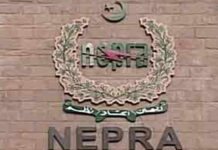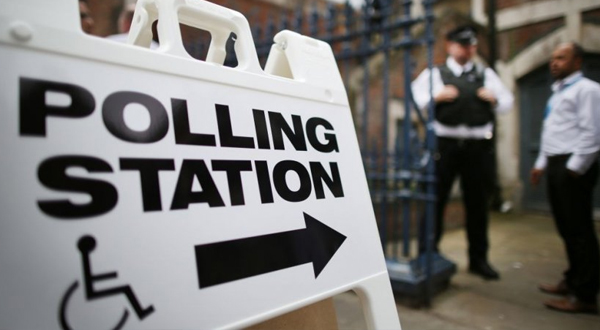RAJM AL-SALIBEH, Syria: They have escaped the Islamic State group stronghold of Mosul but hundreds of Iraqis seeking refuge in neighbouring war-torn Syria are now trapped on the border under militants’ fire.
As hungry and thirsty children wander in tears between makeshift tents, a motorbike suddenly roars towards the encampment in the Rajm al-Salibeh border area, just inside Syrian territory.
Syrian Kurdish fighters manning the border open fire, fearing an IS scout, or even a suicide bomb attacker.
The vehicle disappears from view but then reemerges and is again met by fire from the Kurdish forces a second time before it retreats.
The incident heightens the tension and fear at the border, where Iraqis fleeing IS-held Mosul ahead of an army operation to recapture the city are seeking refuge in their war-torn neighbour.
“A mortar shell fell and an Iraqi family was injured. Day and night there are clashes. We’re living in danger here,” said one Iraqi in his thirties, who refused to give his name.
He said he feared reprisals against relatives still in Mosul, and spoke with his checkered keffiyeh over his face to hide it from the camera.
Around him in the desert, hundreds of Iraqis waited in the heat.
Despite the war that is ravaging Syria and has displaced millions of its residents, the Iraqis are desperate to reach the UN-run Al-Hol refugee camp in Syria’s Hasakeh province.
The wait is long: this group has been stuck on a stretch of Syrian border for 10 days, with IS-held Iraqi territory just behind them.
Kurdish and Arab fighters from the Syrian Democratic Forces man earth berms on the border, and regularly skirmish with IS fighters coming from Iraq.
The militants sometimes send scouts to see where people have gathered and then launch mortar shells at fleeing civilians.
“We’re on the front here, there is constant fire,” said another Iraqi refugee, his face also covered, this time with a black scarf.
“My son is sick from the heat. Why won’t they help us and let us enter Al-Hol?” he asked, also refusing to give his name for fear of reprisals.
Local officials say the delays are necessary to prevent IS fighters from entering the country and the camp.
“There are security procedures to follow. We’re afraid that Daesh (IS) elements might try to infiltrate disguised as civilians,” camp official Roder Younes told AFP earlier in the week.
Al-Hol lies some 200 kilometres from Mosul, territory that those fleeing must navigate mostly on foot, dodging IS mines and sniper fire intended to keep civilians from escaping.
The waiting families lie on blankets under makeshift fabric tents that shade them from the blazing sun.
Men and women haul heavy bags stuffed with their remaining belongings, as barefoot and in some cases visibly malnourished children nibble biscuits that temporarily distract them from crying.
“The heat and the hunger are killing us,” said Nawal, dressed in black.
“At night it is so cold we dig a hole to bury our hands in and warm them up,” she added, sitting with her three children in a group of other women.
At Al-Hol, the camp is being expanded to accommodate the refugees already arriving and the many more who are expected to come as the operation to recapture Mosul advances.
Some 6,000 people have been at the camp for around the last two years, and it is being expanded to receive 30,000 people.
On Friday, the United Nations refugee agency UNHCR said 912 Iraqis had arrived at the camp in recent days.
But for those trapped on the border, the process is not moving fast enough. “We’re been here a week, we’re thirsty and a container of drinking water is
1,500 Syrian pounds ($3), we can’t afford that,” complained Ibrahim al-Khalaf, sitting in a makeshift tent with his wife and six children.
“We fled oppression, and we hope we won’t be oppressed here too.”





